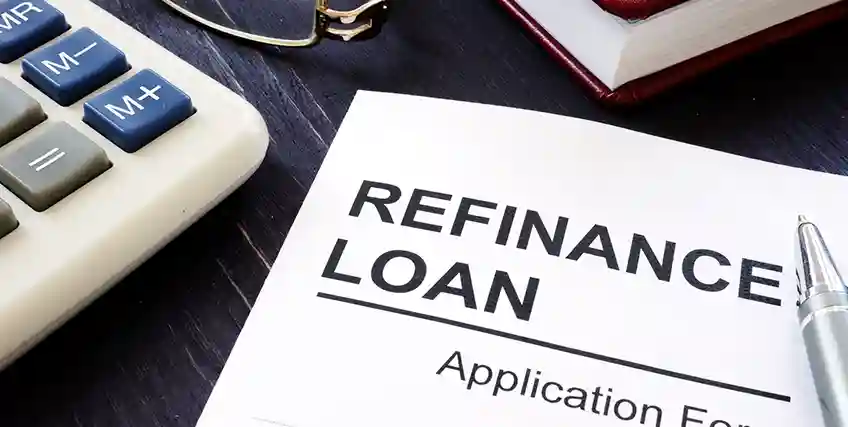Struggling to Get Approved?
Try a Bad Credit Business Loan
Looking for Business Financing?
Apply now for flexible business financing. Biz2Credit offers term loans, revenue-based financing, lines of credit, and commercial real estate loans to qualified businesses.
Set up a Biz2Credit account and apply for business financing.
Not every small business starts with a strong financial profile. Many owners face challenges due to a low credit score or limited credit history. This makes traditional loan options harder to secure. However, there are several low credit business loans tailored for such situations.
These loans help cover essential business needs like working capital, inventory, or emergency repairs. They are structured to be accessible, with flexible requirements, shorter terms, and faster processing times. Whether you're an entrepreneur or a seasoned owner recovering from past setbacks, understanding your business financing options is the first step toward rebuilding.
What Are Low Credit Business Loans?
Low credit business loans are financing options designed for business owners with low credit scores, a limited credit history, or past financial difficulties. Unlike traditional loans, they focus less on the borrower's creditworthiness and more on current cash flow, annual revenue, and business potential.
These loans are offered by alternative lenders, online lenders, and sometimes nonprofit institutions. While approval may come with higher interest rates, the trade-off is often relaxed requirements and faster funding.
Types of low credit business loans include invoice factoring, microloans, and equipment financing. Each type of loan serves different purposes but shares a common goal: offering access to business funding when traditional banks say no.
Borrowers should always review repayment terms, expected monthly payments, and whether a personal guarantee or collateral is required. This ensures they choose the right path for their business needs.
Who Needs Low Credit Business Loans?
These loans are ideal for:
- Startup founders with little to no established business credit score
- Owners recovering from a drop in their FICO score
- Companies needing quick funds to manage cash flow gaps
If you’ve recently been denied by traditional banks, these options could help you stay afloat or even scale. Many low credit business loans are used to stabilize working capital, fund payroll, or purchase inventory. Even if you’re still building your creditworthiness, some lenders look at business performance instead of just your personal credit score.
Types of Business Financing for Poor Credit
01 Merchant Cash Advances
A merchant cash advance is not a loan, but a lump sum payment in exchange for a percentage of daily sales. It's ideal for businesses with consistent card transactions. These are common among poor credit business loans because approval often doesn’t depend heavily on credit history. Instead, it focuses on sales volume. However, it comes with higher interest rates and shorter terms. Factor rates often apply instead of APR.
02 Invoice Factoring and Invoice Financing
With invoice factoring, a factoring company purchases your receivables at a discount and gives you a portion upfront. In invoice financing, you use invoices as collateral. These solutions are excellent financing options for businesses that have unpaid invoices but need fast capital. Approval depends more on your clients' reliability than your credit score requirements. This makes them an appealing option for low credit business loans.
03 Microloans
Microloans are small loans typically under $50,000. They are often provided by nonprofits or through the SBA. Great for startup owners and underserved borrowers, they offer flexible repayment terms and support for low credit business loans. You may still need a business plan and some documentation, but your personal credit score has less weight.
04 Equipment Financing
This type of loan helps you acquire machinery or vehicles by using the equipment as collateral. Because it is a secured loan, your credit score matters less. Businesses with low credit scores often turn to equipment loans to avoid large upfront purchases. These loans are common in manufacturing, logistics, and construction sectors. Lenders are more comfortable providing funds since the asset secures the deal, even for those seeking low credit business loans.
05 Business Credit Cards
Used wisely, business credit cards can fund minor expenses and build your business credit score. Approval criteria vary, but some options cater to those with lower credit scores. Keep spending in check and make timely payments. That way, your credit profile improves over time, increasing your future loan eligibility. Many low credit business loans borrowers use credit cards as a stepping stone to better creditworthiness.
Key Factors That Affect Loan Approval
Annual Revenue
Lenders may overlook your credit report if your business generates consistent revenue. A healthy annual revenue shows that your business can sustain monthly payments. In some cases, it can help reduce the cost of low credit business loans by lowering the risk for the provider. It also improves your standing with online lenders or alternative lenders who focus more on performance than score.
Business Plan
A solid business plan outlines goals, market strategy, and expected revenue. This helps lenders trust that their funding will be repaid. A clear plan strengthens your case for small business loans for low credit score, especially with alternative lenders. Having detailed revenue projections, industry research, and a realistic growth path adds credibility to your loan application.
Time in Business
Many lenders prefer funding an established business with 1+ years of operations. Longevity implies reliability, even if the credit score requirements aren't met. Businesses younger than a year may face stricter terms or need to consider startup business loan options instead. Demonstrating consistent cash inflow and good vendor relationships may help mitigate the risk.
Personal Guarantee and Assets
Many low credit business loans require a personal guarantee. You may also have to pledge personal assets like real estate or vehicles. This reduces the lender's risk but puts your property at stake if you default. Ensure you understand the liability before signing. It's a common condition across low credit business loans for those with challenged credit.
Business Bank Account
A separate business bank account helps show that your business has organized cash flow. Many lenders will ask for 3–6 months of statements. Accounts with stable income strengthen your loan application, even with a low credit score. It also demonstrates that you treat the business professionally and have solid financial discipline.
How to Improve Your Chances of Approval
Know Your Credit Report
Before applying for any low credit business loans, check your credit report for errors or outdated data. Disputing inaccuracies can give your score a quick lift. Understanding your personal credit score helps you set realistic expectations. Even small improvements can impact your eligibility requirements and interest rates significantly.
Open and Maintain a Business Bank Account
Lenders often want to see a dedicated business bank account with consistent transactions. It separates personal from business finances and offers a clearer picture of cash flow. Some loan application forms even require account details to verify annual revenue.
Build Credit Gradually
Use business credit cards wisely to build your business credit score. Make payments on time and keep balances low. Over time, this establishes creditworthiness, expanding access to better loan options and rates.
Pros of Low Credit Business Loans
Cons of Low Credit Business Loans
1. Higher Interest Rates
Most low credit business loans come with higher interest rates to offset the risk for lenders. This means the overall cost of borrowing can be substantial. It’s essential to evaluate the APR, factor rate, and total repayment obligation before signing. Small businesses should compare offers and choose a plan that aligns with their cash flow.
2. Shorter Repayment Terms
To limit risk, many low credit business loans come with shorter repayment terms. While this means quicker debt resolution, it can also strain monthly payments. Business owners should prepare for tighter cash schedules and assess whether the business can afford a faster repayment structure, especially if working capital is already tight.
What You Might Qualify For
If you’re exploring low credit business loans, expect offers ranging from $5,000 to $50,000. The loan amounts vary based on your annual revenue, time in business, and cash flow strength. While exact terms differ by lender, most options for poor credit business loans come with higher interest rates, often between 15% to 50% APR.
Repayment periods may be short, sometimes weekly or daily. Some lenders also charge factor rates instead of traditional interest. If you're applying for equipment loans, the machinery itself may serve as collateral. For invoice financing, you’ll likely receive 70% to 90% of the invoice value upfront.
Before applying, understand if a personal guarantee, down payment, or collateral is needed. Being realistic about what you qualify for helps avoid rejections and prepares you for the true cost of financing.
Alternatives Worth Exploring
If traditional low credit business loans don’t suit your needs, consider these alternatives:
SBA Loans
The Small Business Administration (SBA) offers loan programs with partial government backing, reducing risk for lenders. While SBA loans have strict documentation and eligibility requirements, some programs may accept borrowers with a low credit score if they show strong financials or a solid business plan. These loans are ideal for business owners seeking long-term, lower-interest funding options compared to alternative lenders.
Grants and Nonprofits
Local development agencies and nonprofit lenders sometimes offer grants or microloans to minority-owned businesses, startups, or businesses in underserved areas. These funding options typically come with flexible terms, and some don’t require repayment at all. While competitive, they are great alternatives for those with poor credit or no access to traditional loans. Look into local chamber of commerce websites for leads.
Crowdfunding
If you have a compelling idea or product, crowdfunding can be a powerful tool. Platforms like Kickstarter or Indiegogo let you raise funds from the public, bypassing credit score requirements or repayment terms. While success depends on your campaign strategy and outreach, this method works well for new businesses or innovative products that need early-stage backing without involving lenders.
Invoice Factoring
Invoice factoring converts your unpaid invoices into instant cash by selling them to a factoring company. It’s useful when you have strong receivables but weak credit. This alternative option boosts working capital without waiting 30–90 days for payment. Ideal for small business owners who serve creditworthy clients but face cash flow gaps.
Each of these funding options provides a way to access capital without relying strictly on a credit score, expanding your financing possibilities.
Final Thoughts
Your credit history doesn't define your future. With the right approach, low credit business loans can bridge gaps in funding and build long-term resilience. Whether it’s handling emergency expenses, acquiring equipment, or sustaining cash flow, these loans serve real business needs.
Start by reviewing your credit report, organizing your business plan, and separating your finances with a business bank account. Apply only to loans aligned with your revenue and repayment ability. Over time, timely payments and financial discipline will raise your creditworthiness, opening doors to more favorable small business loan terms.
Articles on Bad Credit Business Loan
5 Common Mistakes to Avoid When Applying for a No Credit Business Loan
In today’s competitive financing landscape, lenders recognize that many startups and small businesses lack long-established credit histories.
How to Turn Loan Rejection Into a Funding Strategy With Bad Credit
If you've been rejected for business loans with bad credit, you're not alone and you're not out of options. For many small business owners
Bad Credit Business Loans: What You Need to Know Before Applying
If you have a bad credit FICO score which falls between 300 to 579 it will be considered as a bad credit in business loans.
Best Refinance Companies for Bad Credit Options: You Can Trust
The good news is that refinancing is now not limited to borrowers with perfect credit anymore.
How to Get a Business Loan with Bad Credit in 2026 Options That Still Work
If you are running a business with bad credit, it may give you a feeling of lifting weights on your ankles.
FAQs Business Loans With Bad Credit
1. What’s the easiest loan to get with poor credit?
Invoice factoring, equipment loans, and merchant cash advances are among the easiest. These loans rely on assets or receivables, reducing dependence on your credit score. While convenient, review the repayment terms and total cost carefully.
2. Will applying for a business loan hurt my credit score?
Some lenders perform a soft credit pull initially, which doesn't affect your score. However, hard inquiries for loan applications can reduce your FICO score slightly. It’s smart to apply selectively.
3. How do I choose the best loan option for poor credit?
Compare your options based on total cost, APR, repayment terms, and how urgently you need funding. Consider equipment loans if you need gear, or business credit cards for flexibility. Match the loan to your exact business needs.
4. Do I need collateral for low credit business loans?
Unsecured loans and business credit cards typically don’t require it. But for larger loan amounts, you may need to pledge personal assets or provide a personal guarantee.
5. Can I improve my credit while repaying the loan?
Making consistent, on-time payments on low credit business loans improves your business credit score and overall creditworthiness. Consider loans that report to credit bureaus to make each payment count.
Frequent searches leading to this page
Term Loans are made by Itria Ventures LLC or Cross River Bank, Member FDIC. This is not a deposit product. California residents: Itria Ventures LLC is licensed by the Department of Financial Protection and Innovation. Loans are made or arranged pursuant to California Financing Law License # 60DBO-35839





